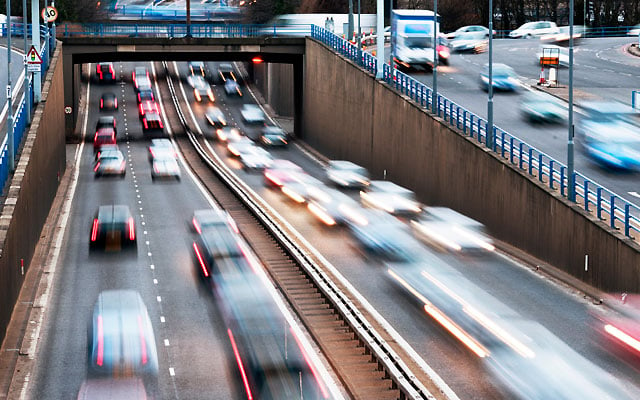It’s an offence to drive, attempt to drive, or be in charge of a motor vehicle on a road or public place if the level of alcohol in your breath, blood or urine exceeds the prescribed limit.
The legal limit of alcohol in the body is:
- 35 micrograms (µg) per 100 millilitres of breath
- 80 milligrams (mg) per 100 millilitres of blood
- 107 milligrams per 100 millilitres of urine
A lower limit of 50 milligrams (mg) per 100 millilitres of blood has been in force in Scotland since 2014.

Your alcohol level at the time of any alleged offence is presumed to be the same, or not less than, the result of the analysis of the breath, blood or urine sample.
You may be able to challenge this if you can show that:
- You had consumed alcohol after you stopped driving but before the specimen for analysis was provided, and
- had you not taken that alcohol you would not have been over the limit, and
- your ability to drive would not have been impaired.
If the offence alleged is 'being in charge', it’s a defence if you can show that there was no likelihood of you driving while you were over the limit.
Failing to provide a sample
It’s an offence and you risk automatic disqualification if you:
- Fail to provide a specimen of breath for a preliminary breath test, or
- Fail to provide a specimen of breath, blood or urine at the police station when requested unless you have a reasonable excuse (a physical or mental inability to provide the sample), or
- Refuse to provide a specimen.
Imposing conditions such as delaying giving a sample until a solicitor arrives amounts to a refusal.
Unless there’s a relevant medical reason, you should never refuse to give a specimen, regardless of whether you feel your refusal would be justified or not.
If a court subsequently doesn't accept your reasons for refusal, it’ll be too late to avoid the offence of refusal.
Unfit to drive
It’s also an offence to drive, attempt to drive, or be in charge of a mechanically propelled vehicle on a road or public place while unfit through drink or drugs.
- You’d be considered unfit if your ability to drive properly is impaired, even if the amount of alcohol in your body is below the limit.
- Erratic driving, an accident, or your condition may all be considered evidence of being unfit
Penalties
It’s impossible to say exactly what a court may impose in a particular case – prison (up to 14 years), an unlimited fine and disqualification for at least two years are all possible depending on the offence.
A conviction for a drink driving offence will also affect the cost of your car insurance and may also mean that you’re prevented from travelling to some countries.
Lower limit in England and Wales
It seems unlikely that England and Wales will follow Scotland's lead and introduce a lower limit. The government is on record as saying that it believes rigorous enforcement and serious penalties for drink drivers are a more effective deterrent than changing the drink driving limit.
28 February 2017
